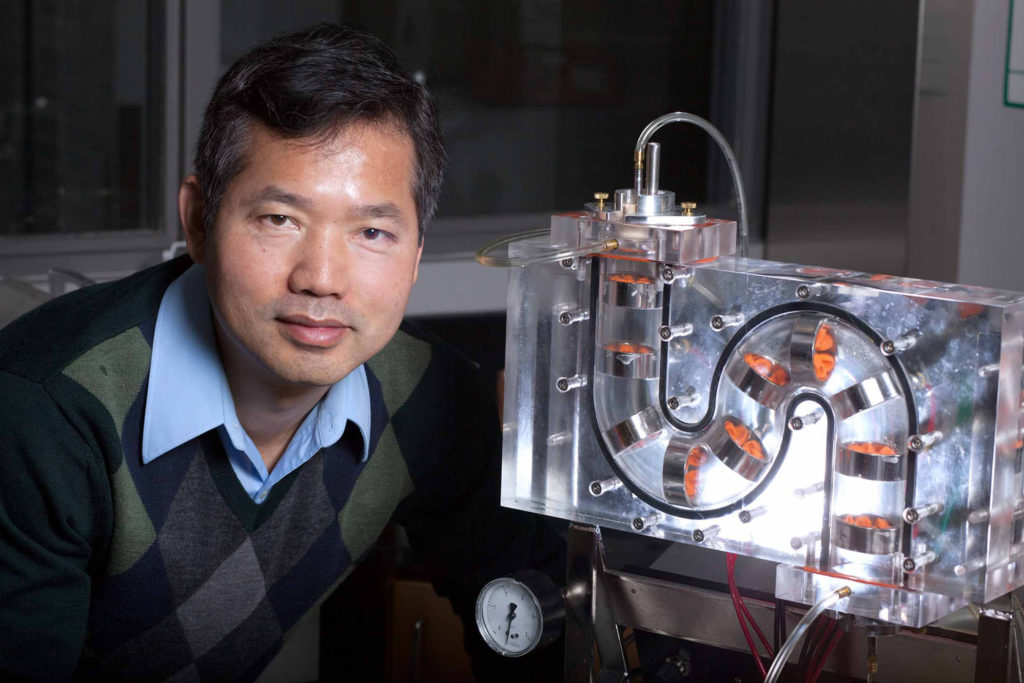UGA food engineer Fanbin Kong has been awarded a $496,317 grant from the U.S. Department of Agriculture’s National Institute of Food and Agriculture to study the safety of nanocellulose—a light, solid substance obtained from plant matter, generally wood pulp—and how it affects the way humans digest food and absorb nutrients.
Kong developed models of the human stomach and intestine that realistically demonstrate the way food breaks downs in the human body. These models help him test the effectiveness of functional foods and develop new foods aimed at helping those with specific health issues.
“At UGA, we will use artificial stomach and intestine models to study how the nanocellulose will transform their size and shape in the digestive tract, and how they will interact with protein, lipid and starch molecules that affect their digestibility,” Kong said.
Nanocellulose currently is used in the food industry as a stabilizing agent, as a functional food ingredient and in the production of food packaging. It “has big application potentials,” said Kong, an assistant professor in the UGA College of Agricultural and Environmental Sciences department of food science technology. “It could be added to packaging materials to strengthen them or added to food as a dietary fiber. It also greatly increases the viscosity of foods. We now have the technology to break down cellulose to nanoscale size, called nanocellulose, with a diameter of 1-100 nanometers. In comparison, human hair is about 80,000 nanometers in diameter.”
Kong will collaborate with scientists at the University of Missouri who will conduct cell tests to determine whether or not the nanofibers can penetrate into intestinal cells and how they will impact the gut microflora.
Tailiang Guo, a toxicologist with the College of Veterinary Medicine, will use mice to validate the results from the simulation test, including examining any toxic effects caused by eating food that contains nanocellulose.
